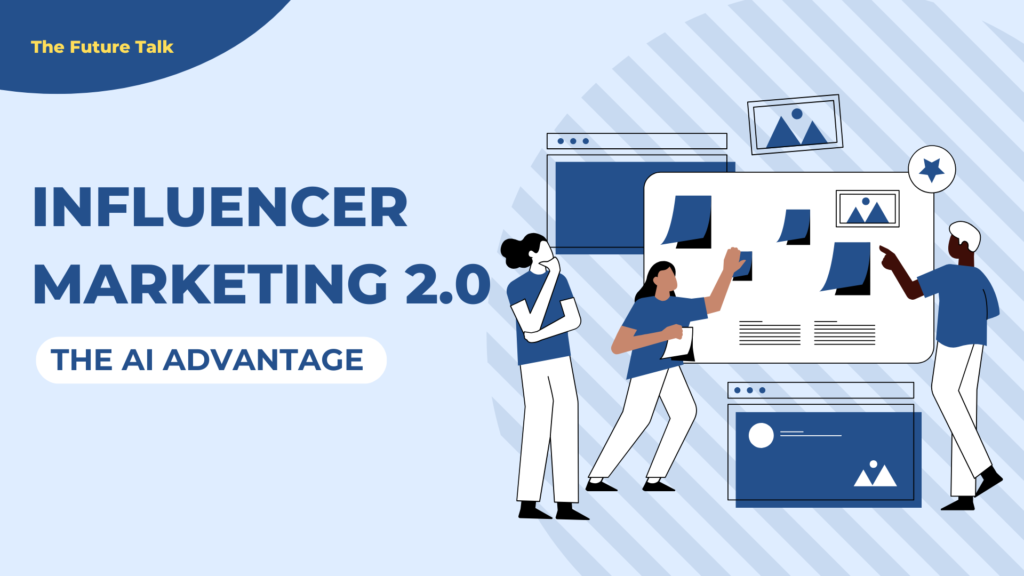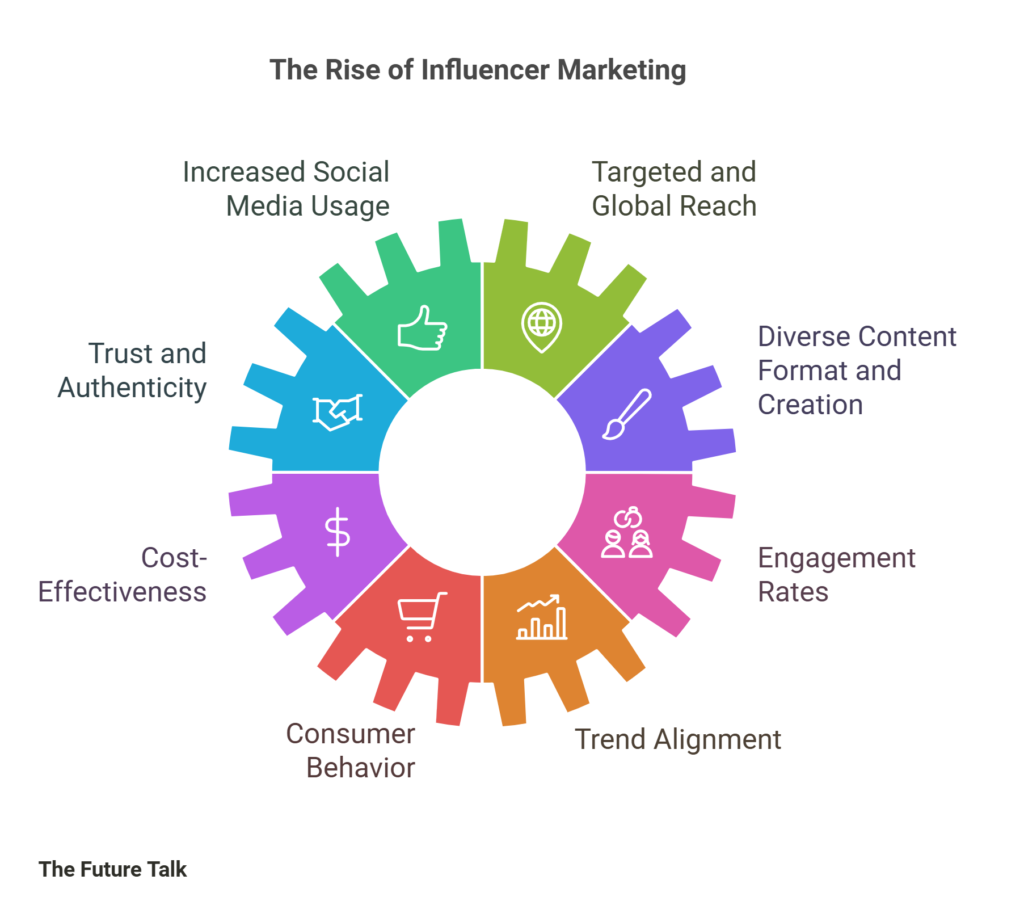AI in Influencer Marketing presents significant opportunities for brands to reach their target audience, build genuine relationships, and maximize their marketing campaign.

The integration of AI in influencer marketing is revolutionizing the way marketing is being done. Influencers now have a significant impact on how consumers behave and perceive brands thanks to the growth of social media platforms.
The global market of influencer marketing platforms is projected to reach US$51.66 billion by 2030 from USD 17.40 billion in 2023 at a CAGR of 16.8% during 2023-2030, according to Fortune Business Insights.
In India, the latest report by EY and Collective Artists Network’s Big Bang Social indicates that the influencer marketing industry is expected to the hit Rs 3,375 crore mark by 2026, increasing from Rs 2,344 crore at a rate of 25% in 2024.
The use of artificial intelligence (AI) is enabling efficiency, accuracy, and creativity in a variety of fields, including campaign performance analysis, personalized content generation, and influencer match analysis.
Also Read: Virtual Reality in Marketing Revolutionizing Consumer Experience
Why Influencer Marketing?
Today, we all spend most of our time on social media platforms. For entertainment, we use Instagram. To connect with friends, we use Facebook/Meta, and for job searches and professional connections, there is LinkedIn.
But what is common of all these social media giants? They all allow you to promote your content (products and services) on their platforms. Many reports suggest that Instagram and YouTube are mostly used to consume content.
Here are the key reasons why influencer marketing is growing:

AI in Influencer Marketing: Threat or Opportunity?
Over the past decade, influencer marketing has expanded at a rapid pace, moving from a niche strategy to a mainstream approach used by companies all over the world. With technological advancements, AI is starting to affect influencer marketing more and more as it continues to seep into diverse industries.
Here are some key ways AI is creating opportunities in influencer marketing:
Content Creation and Optimization
AI is capable of producing incredibly tailored and engaging content for influencers and brands alike. In addition to content creation, there are numerous AI tools that can help generate photos, videos, and even audio that make content more engaging.
AI has the potential to predict which types of content will resonate best with an audience based on historical data. Some of the popular AI tools for content ideation and optimization for maximum engagement are ChatGPT, Jasper.ai, and the like.
Enhanced Influencer Discovery and Matching
Finding and connecting influencers with brands more effectively is one of the biggest opportunities AI offers in influencer marketing. Conventional approaches to identifying influencers are more laborious, time-consuming, and mostly based on human searches and subjective criteria.
The use of AI technology such as NLP assesses the language and tone used by influencers, ensuring that they resonate with the brand’s voice. AI-powered technologies also analyze vast volumes of data, ranging from social media posts and follower demographics to engagement rates, and content types, to find influencers that meet a brand’s values.
Campaign Management and Measurement
By analyzing data on market trends and customer preferences, AI can identify the target audience. It helps influencers personalize content, ensuring that marketing messages resonate more effectively with diverse segments and ultimately enhancing campaign management and measurement. To deliver insights into campaign effectiveness, AI provides real-time analytics to track key performance indicators (KPIs).
Let’s have a look at the threats posed by AI in Influencer Marketing:
While AI presents significant opportunities, it also poses threats and challenges.
Fake Followers and Engagement
One of the most common challenges in today’s social media age is the use of fake followers and engagement. With AI-enabled bots, anyone can create fake profiles and generate automated likes, comments, and shares.
Since these bots can inflate an influencer’s perceived reach and engagement, marketers may end up investing in influencers who lack real authority. Overall, this will waste marketing budgets and also skew data analytics which impacts the measurement of true campaign effectiveness.
Data Privacy Concerns
Influencer marketing heavily relies on audience behavior, preferences, and market trends. However, the use of AI in this marketing approach can create serious privacy issues with this kind of comprehensive data collection. There is a chance that followers’ and influencers’ personal information can be exploited or revealed.
Furthermore, data misuse may result in violations of privacy laws like the General Data Protection Regulation (GDPR). Ensuring compliance with data privacy laws and regulations can be effective in mitigating the privacy concerns of AI in influencer marketing.
Ethical Considerations
The role of AI in influencer marketing also raises ethical concerns. For example, its use to manipulate audience behavior or sentiment can be considered unethical. Furthermore, trust among influencers, brands, and their audiences can be damaged by the lack of transparency in AI decision-making processes.
Also Read: How Emotional Intelligence Impacts Digital Marketing Success?
The Bottom Line
The exploration of AI in influencer marketing highlights its potential to outperform traditional marketing challenges and unlock new opportunities. Beyond mere automation, this revolutionary technology can empower brands to make data-driven decisions, generate more engaging content, and establish authentic connections with their audiences.
As we delve deeper into the use of AI in influencer marketing, we will explore its profound impact on the industry and its future trajectory.
Stay tuned to The Future Talk for more such interesting topics. Comment your thoughts and join the conversation.